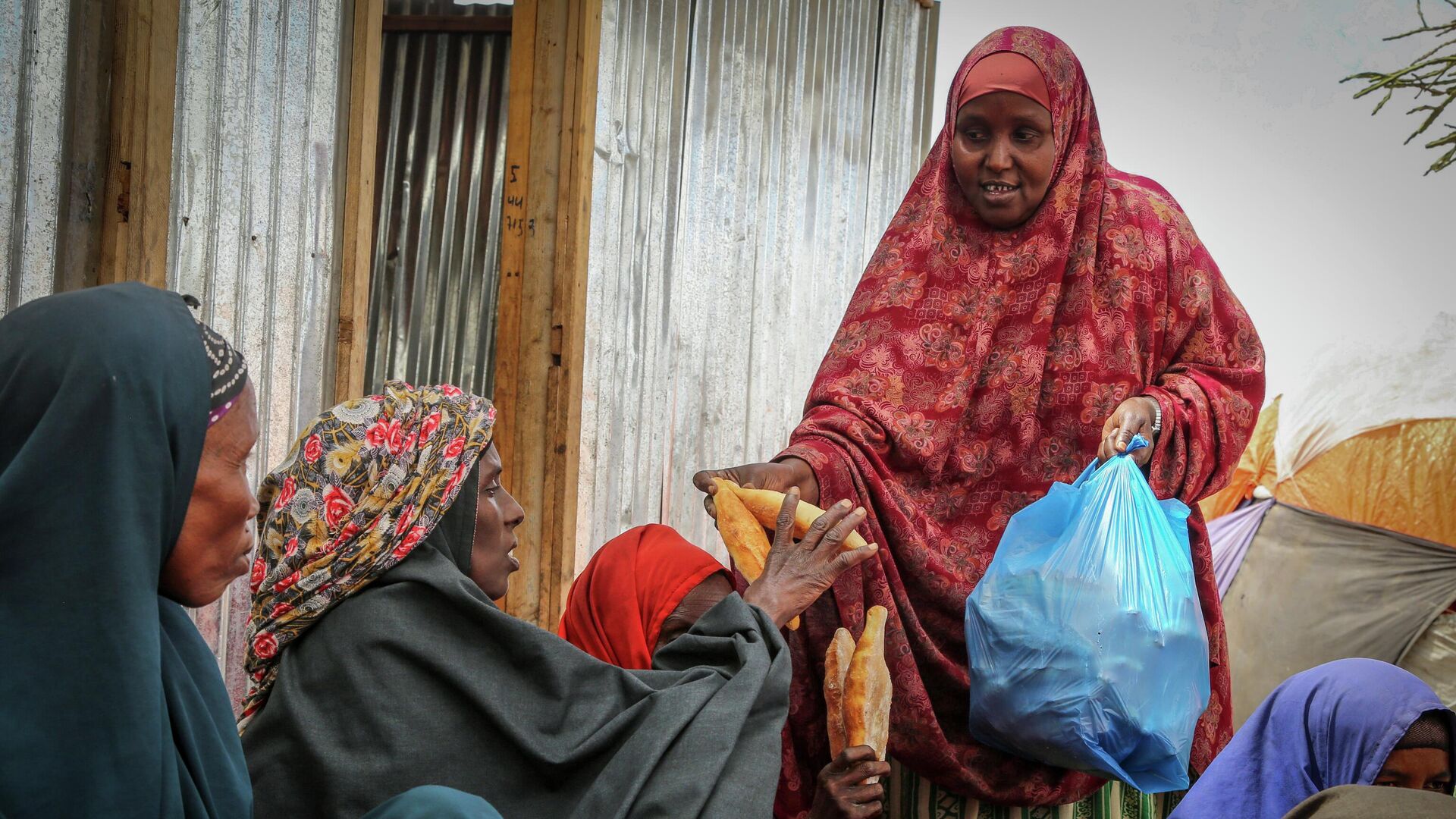https://sputnikglobe.com/20221027/senior-un-official-says-has-no-idea-where-climate-change-money-for-africa-went-1102755212.html
Senior UN Official Says Has No Idea Where Climate Change Money for Africa Went
Senior UN Official Says Has No Idea Where Climate Change Money for Africa Went
Sputnik International
At a UN climate change summit in 2009, developed nations committed to providing low-income governments with $100 billion a year by 2020 to help them mitigate... 27.10.2022, Sputnik International
2022-10-27T12:37+0000
2022-10-27T12:37+0000
2023-02-14T14:11+0000
africa
the united nations (un)
humanitarian disaster
humanitarian aid
humanitarian assistance
humanitarian crisis
somalia
famine
east africa
horn of africa
https://cdn1.img.sputnikglobe.com/img/07e6/0a/1b/1102765817_0:0:3072:1728_1920x0_80_0_0_9e5c9c32d0f568970245a3eec5b231c8.jpg
The chief of the UN's Office for the Coordination of Humanitarian Affairs (OCHA) has questioned why the famine in Somalia has not been addressed, despite billions of dollars being donated to tackle the climate issue.Under-Secretary-General for Humanitarian Affairs and Emergency Relief Coordinator Martin Griffiths has asked for more openness in climate financing, as he said he had no idea what happened to the promised $100 billion a year to combat the effects of global warming in developing countries.According to him, Somalis are "the victims of our behavior, the victims of our habits - not of theirs."Griffiths claimed that when he asked governments about how climate financing was chosen and dispersed, he "failed" to receive a response. Griffiths' critique of the murky financing mechanism adds to growing demands for more transparency and simpler access to the promised funds emanating from African nations and activists.Developed countries mobilized $83 billion in 2020, according to the Organization for Economic Co-operation and Development, which tracks donor contributions to climate financing. Just 8% of the funds were distributed to low-income nations between 2016 and 2020. The international NGO Oxfam reported last week that just a fifth of the money raised by affluent nations, somewhere between $21 billion and $24.5 billion, had reached less-developed countries. According to the nonprofit, loans account for more than 70% of climate financing.Moreover, Lee White, minister of the environment and climate change for Gabon, reportedly criticized the funding system, claiming there is no easy method to track how much money has been donated and where it has been spent, as donor countries self-report contributions.In early September, the UN warned that due to Somalia's ongoing drought and conflict flare-ups, famine may be declared in some areas of the East African nation before the end of the year.
africa
somalia
east africa
horn of africa
Sputnik International
feedback@sputniknews.com
+74956456601
MIA „Rossiya Segodnya“
2022
News
en_EN
Sputnik International
feedback@sputniknews.com
+74956456601
MIA „Rossiya Segodnya“
Sputnik International
feedback@sputniknews.com
+74956456601
MIA „Rossiya Segodnya“
the united nations (un), humanitarian disaster, humanitarian aid, humanitarian assistance, humanitarian crisis, somalia, famine, east africa, horn of africa, drought
the united nations (un), humanitarian disaster, humanitarian aid, humanitarian assistance, humanitarian crisis, somalia, famine, east africa, horn of africa, drought
Senior UN Official Says Has No Idea Where Climate Change Money for Africa Went
12:37 GMT 27.10.2022 (Updated: 14:11 GMT 14.02.2023) Kirill Kurevlev
Managing Editor
At a UN climate change summit in 2009, developed nations committed to providing low-income governments with $100 billion a year by 2020 to help them mitigate and adapt to climate change. The Green Climate Fund was established as a means of distributing the funds, but its effectiveness has frequently been questioned over the years.
The chief of the UN's Office for the Coordination of Humanitarian Affairs (OCHA) has questioned why the famine in Somalia has not been addressed, despite billions of dollars being donated to tackle the climate issue.
Under-Secretary-General for Humanitarian Affairs and Emergency Relief Coordinator Martin Griffiths has asked for more openness in climate financing, as he said he had no idea what happened to the promised $100 billion a year to combat the effects of global warming in developing countries.
"The truth of the matter is that we are scrambling to try to understand where the climate money is that was promised a decade ago. Where is it? Who’s holding it and who is not delivering it to places like Somalia?” Griffiths said, as quoted by The Guardian.
According to him, Somalis are "the victims of our behavior, the victims of our habits - not of theirs."
"And yet we haven’t even managed to get to them the money that we pledged nobly some time ago for exactly this kind of purpose," he added.
Griffiths claimed that when he asked governments about how climate financing was chosen and dispersed, he "failed" to receive a response.
Griffiths' critique of the murky financing mechanism adds to growing demands for more transparency and simpler access to the promised funds emanating from African nations and activists.
Developed countries mobilized $83 billion in 2020, according to the
Organization for Economic Co-operation and Development, which tracks donor contributions to climate financing. Just 8% of the funds were distributed to low-income nations between 2016 and 2020.
The international NGO Oxfam
reported last week that just a fifth of the money raised by affluent nations, somewhere between $21 billion and $24.5 billion, had reached less-developed countries. According to the nonprofit, loans account for more than 70% of climate financing.
Moreover, Lee White, minister of the environment and climate change for Gabon, reportedly criticized the funding system, claiming there is no easy method to track how much money has been donated and where it has been spent, as donor countries self-report contributions.
“Few developing countries have the capacity to write bankable projects, and there are so many clumsy procedures even if you get money, it often feels that the system is designed to prevent you spending the funds on anything other than developed-nation consultants,” he explained.
In early September, the UN
warned that due to Somalia's ongoing drought and conflict flare-ups, famine may be declared in some areas of the East African nation before the end of the year.


